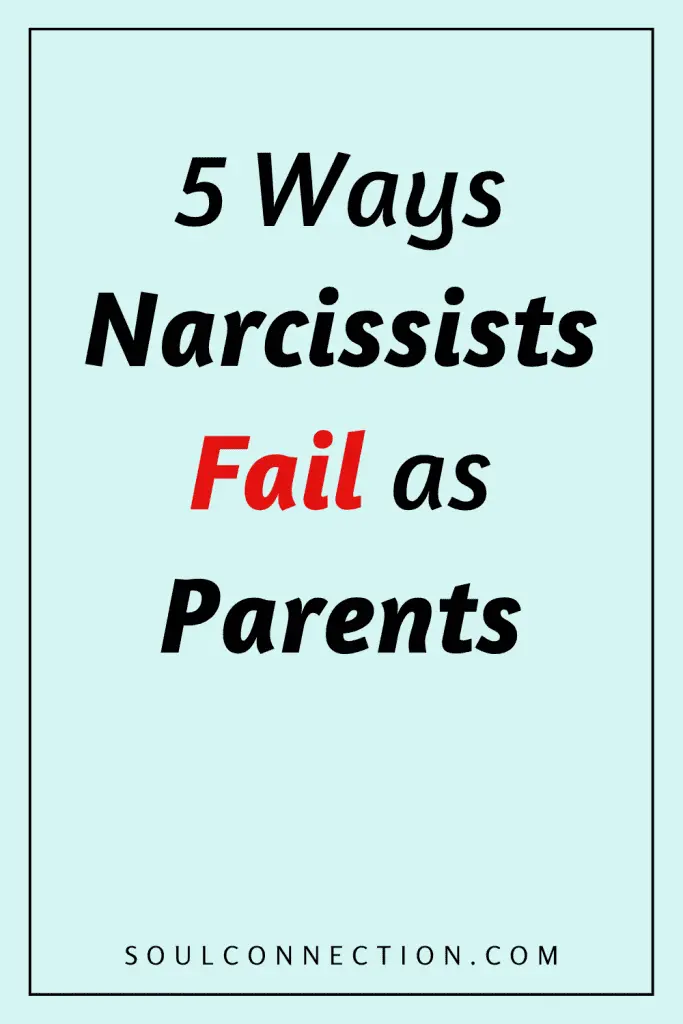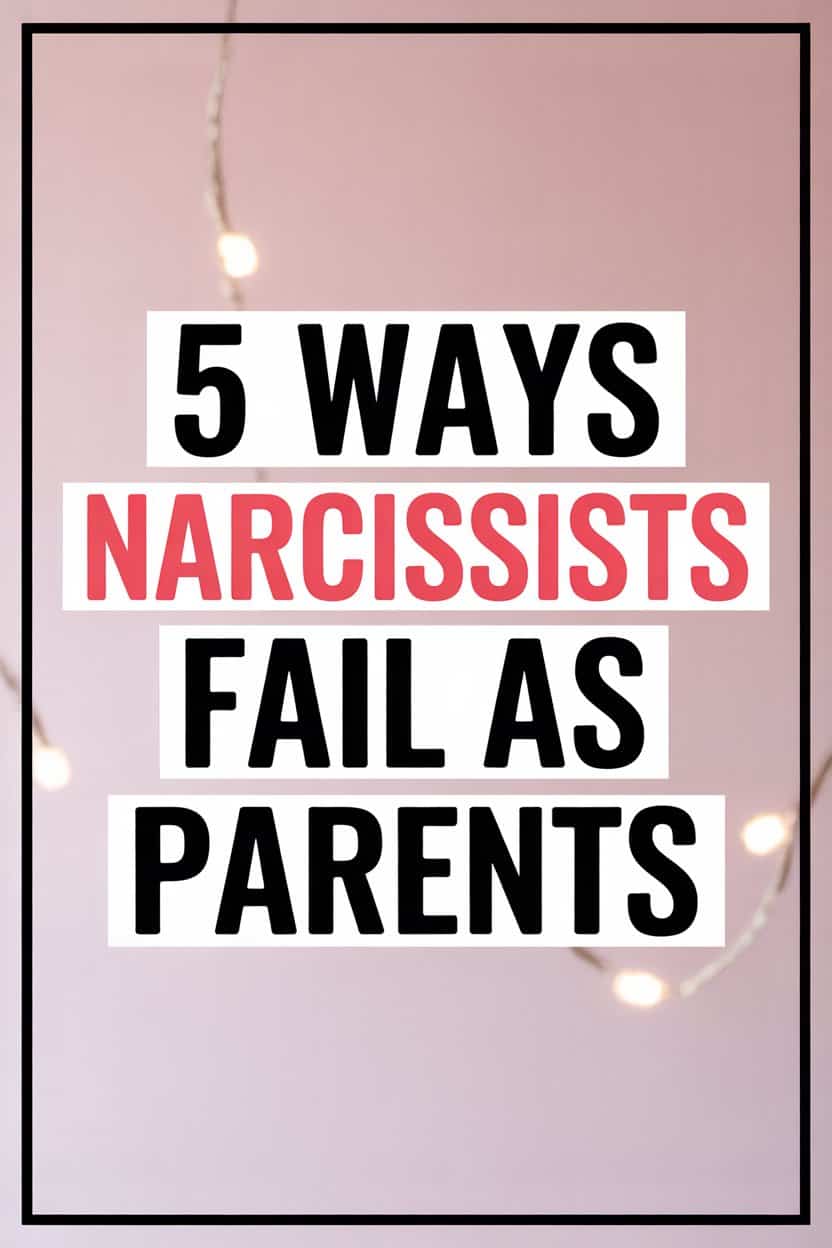Ever met someone who could make a root canal seem emotionally supportive by comparison? Sometimes, that’s the vibe kids get from narcissistic parents—only with less anesthesia.
Parenting asks for empathy, sacrifice, and the ability to put another person’s needs above your own. Narcissists, with their love of mirrors (real and metaphorical), tend to trip over these basics more often than toddlers with untied shoelaces.
Curious where things go sideways? Pull up a chair, pour yourself something comforting, and let’s take a hard look at the five big ways narcissists drop the parenting ball.
1. Love Comes with Strings Attached
Narcissists rarely hand out affection without a secret handshake or a performance. “Unconditional love?” Sure, if the conditions are you win the spelling bee, look photogenic, and never challenge their wisdom.
Kids raised by narcissists quickly catch on: praise is rationed, doled out only when it makes the parent look good or feel validated.
This puts children in a relentless talent show, always angling for approval.
The costume? A version of themselves their parent wants to see. Authenticity? That’s for other people’s families—a luxury item, like fresh towels or emotional validation.
Eventually, these children learn to equate love with achievement or people-pleasing. They don’t grow up feeling worthy just as they are; their self-worth is propped up on a wobbly foundation of parental applause.
That’s a recipe for anxiety, perfectionism, and a lifelong suspicion that love is a carrot forever out of reach.
How to untangle this mess? It starts with recognizing that love isn’t a reward—it’s the ground floor.
If you’re parenting alongside a narcissist, or came from this kind of family tree, start showing kids affection for simply existing. Radical, I know.
2. Emotional Needs Get Lost in the Shuffle
Feelings are messy. For narcissists, “messy” is a four-letter word—preferably to be locked away in the crawlspace with the expired canned goods and last year’s Christmas decorations.
When their kids have big emotions, narcissists treat it as a personal inconvenience, or worse, an attack on their peace and quiet.
A scraped knee? That’s drama. Hurt feelings? Manipulation. Kids quickly learn to bottle it up, or else risk being lectured on why their disappointment is really just an overreaction.
What goes missing is emotional attunement: the parental superpower of tuning in, validating, and helping a child process life’s bumps and bruises. Little people don’t have the vocabulary or life experience to handle their feelings alone.
They need a guide—one who doesn’t see every tear as an affront to their authority.
Building an emotionally healthy home starts with making space for all feelings, not just the ones that flatter the grown-ups.
Try asking kids what’s happening on the inside, then actually listening (without offering a TED Talk or a guilt trip). The results are worth it, promise.
3. Boundaries? What Boundaries?
Narcissists love boundaries in theory—especially when they’re the ones setting them. For everyone else, personal space is more of a suggestion than a rule.
These parents see their child’s achievements, friendships, even their tastes in music, as extensions of themselves. Privacy gets treated like a suspicious habit, not a basic human need.
Maybe it’s reading your diary “for your own good,” showing up unannounced at sleepovers, or using “parental concern” as an excuse to bulldoze any sense of independence.
The message is clear: your life is my business, and you exist to reflect well on me.
The fallout? Kids grow up without a healthy sense of ownership over their thoughts, bodies, or choices. Adult relationships get complicated, as the idea of saying “no” to someone they love feels foreign—maybe even dangerous.
Reclaiming boundaries means teaching children (and yourself) that “mine” is a perfectly reasonable word.
Model respecting privacy, and treat your kid’s thoughts and feelings as belonging to them, not to you. It’s not just polite—it’s survival.
4. The Blame Game Is Always in Play
Mistakes are inevitable in parenting. For narcissists, the trick is never admitting to any of them. If something goes wrong—poor grades, a tantrum, questionable fashion choices—someone else is to blame.
Usually, the child, a teacher, or, occasionally, the dog.
Apologies? Not their forte. Narcissists see admitting fault as weakness, or as ammo to be used against them later. Their version of self-reflection is staring at their own reflection and thinking, “Nailed it.”
Kids receive an early masterclass in gaslighting: being told their lived reality is wrong, or that they’re imagining things when they hurt.
Over time, this erodes trust—not just in the parent, but in their own gut instincts. Self-doubt becomes a default setting, while the narcissist maintains their image of infallibility.
Here’s a radical approach: try apologizing. Seriously. It doesn’t shrink you; it grows your kid. Let them see adults mess up, own it, and do better next time.
That’s how healthy self-esteem is built—one honest conversation at a time.
5. The Spotlight Is Always on the Parent
Any family event—recital, soccer match, science fair—quickly becomes “Look What I Produced!” hour. Narcissists can’t resist making their child’s accomplishments (or failures) about them.
If the child shines, the parent is right there to bask in the reflected glory. If the child stumbles, the parent sighs theatrically about how hard it is to have their reputation tarnished.
Children end up feeling less like cherished individuals and more like supporting actors in the narcissist’s one-person show. Their dreams, quirks, and struggles are overshadowed by the parent’s need to be at the center of attention.
This stifles individuality. Kids start to suppress who they are, in favor of who they’re supposed to be.
The world loses some truly weird and wonderful people to this habit—because heaven forbid anyone outshine the star of the show.
If you spot this pattern, commit to giving kids their own stage. Take interest in what makes them tick—without making it about yourself.
Applaud their efforts, not just their results, and resist any urge to hop in the limelight. It’s their story, not yours.
Healing Starts with Awareness
Spotting narcissism in a parent can feel like pulling off a bandage: necessary, but not exactly pleasant.
If you see your childhood in these patterns, or you’re co-parenting with someone who’s allergic to empathy, know this—awareness is the first step toward change.
Children aren’t doomed by their parents’ limitations. New habits, honest conversations, and a little outside help can break these cycles.
Offer unconditional love. Validate feelings—messy ones included. Respect boundaries. Own your mistakes. Celebrate your child for exactly who they are, not just their ability to make you look good at PTA meetings.
Parenting is never perfect, but it can always be improved.
And if you grew up in the shadow of a narcissist, it’s never too late to re-parent yourself, one act of self-compassion at a time.
Who knows? Maybe the next generation will call their parents for advice—rather than for their therapist’s phone number.


